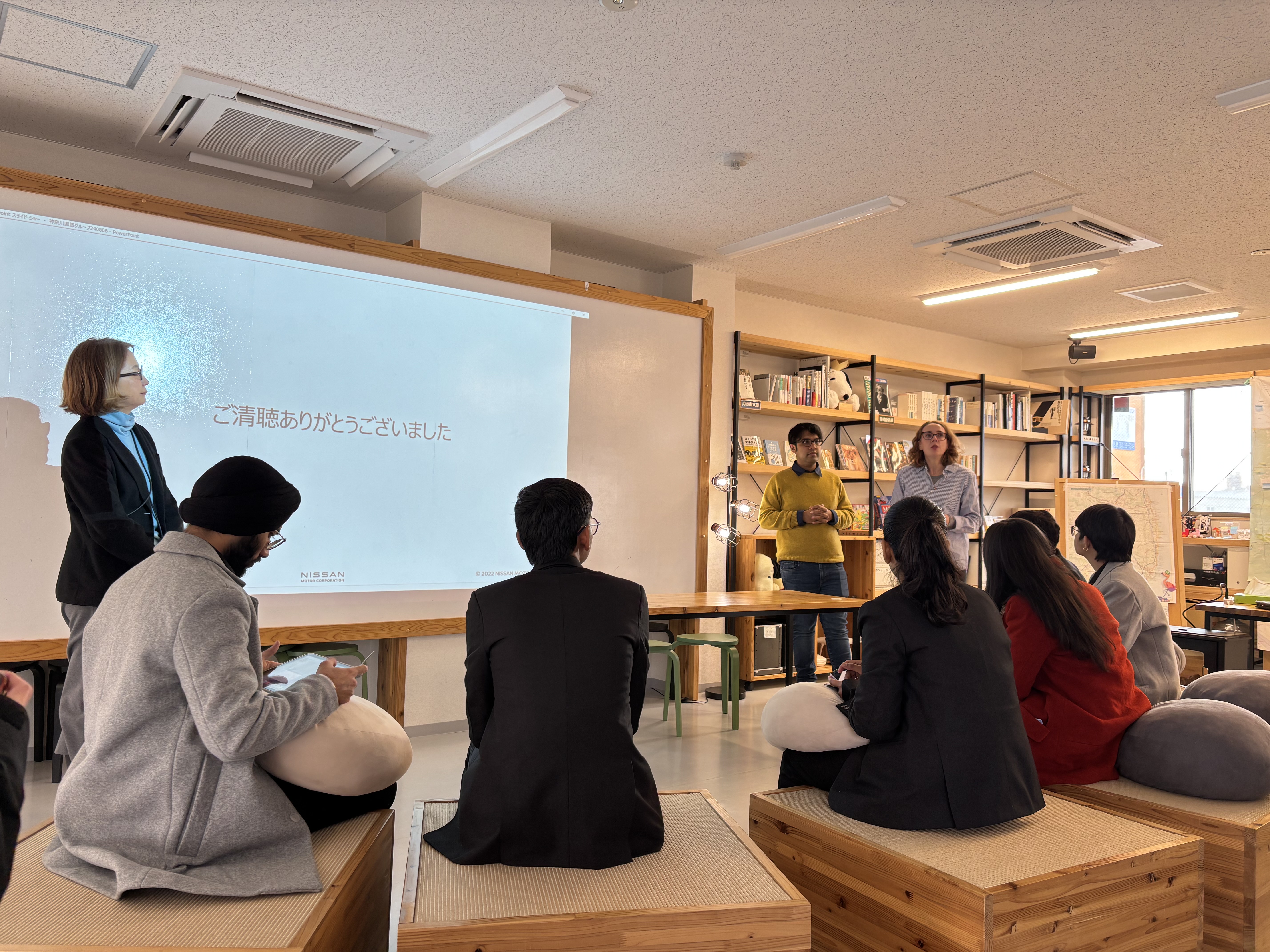
The Fukushima Socio-Industrial Immersion Program, hosted by FIPO and organized by F-ATRAs, provided Indian students with a deep dive into Fukushima’s recovery and innovation efforts. Over three weeks, participants explored pioneering industries, engaged in cultural exchanges, and gained firsthand insights into the region’s resilience.
Note: This content belongs to a 5-part report about the Fukushima Socio-Industrial Experience Program sponsored by Fukushima Innovation Coast Framework (FIPO) and conducted by F-ATRAs (Futaba Area Tourism Research Association) in January, 2025.
In an initiative to foster international collaboration and understanding, the Fukushima Innovation Coast Framework (FIPO) recently hosted a group of Indian students in the Hamadori region of Fukushima Prefecture. This three-week immersion program, funded through FIPO’s Brush-up Program and organized by F-ATRAs (Futaba Area Tourism Research Association), offered students a unique opportunity to witness firsthand the region’s recovery and innovative developments.
The program, titled “Fukushima Socio-Industrial Immersion Program,” featured visits to five pioneering companies that are driving the region’s revitalization. Beginning with Asa no Nenshi in Futaba on January 14, students explored a facility dedicated to preserving and promoting traditional silk-making techniques. The following day, they visited Nissan Smart Mobility in Namie, where they learned about cutting-edge developments in electric vehicles and sustainable transportation solutions.
On January 16, the group toured Okuma Nexus Farm, an innovative agricultural facility showcasing advanced farming techniques and sustainable practices. The journey continued to Tomioka Wine Domain on January 17, where students discovered how the region is developing its viticulture industry as part of its recovery efforts. The company visits concluded at inVisible in Tomioka on January 20, exploring the contribution of art to local revitalization.
Beyond corporate visits, the program included rich cultural exchanges and educational experiences. A highlight was the “Poetry by the Sea” event, where students prepared bhel, a popular Indian street food, while composing poetry alongside local residents. The students also gained deeper insights into the region’s history and ongoing recovery through several guided tours. The Futaba Town Story Walking Tour and Odaka Walking Tour provided intimate glimpses into these communities’ journeys of resilience and renewal. A particularly moving experience was the tour of the Interim Storage Facility led by Mr. Kimura, which helped students understand the complex challenges and solutions in the region’s recovery efforts, and reflect deeply on how we perceive energy in an ever-changing global environment.
This comprehensive program exemplifies FIPO’s commitment to international exchange and education while showcasing Fukushima’s innovative approaches to recovery and development. Through their immersive experience, the Indian students not only gained valuable insights into Japan’s advanced technological and industrial practices but also witnessed the inspiring story of a region’s determination to build back better.
